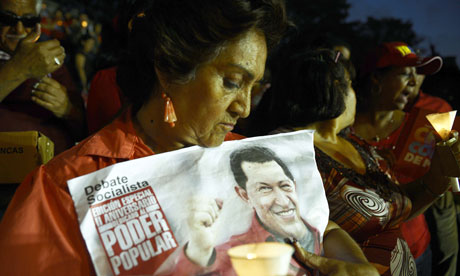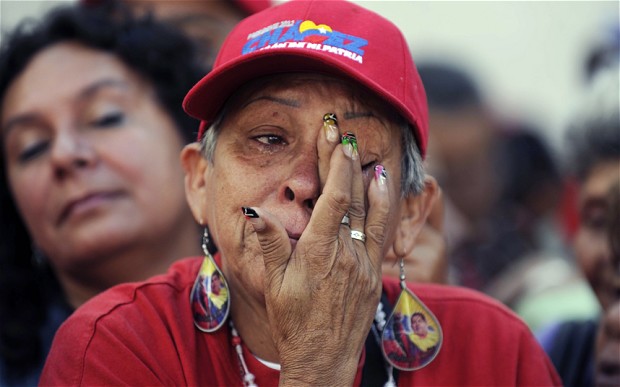Hugo Chávez: The Death of a Great Bolivarian

Hugo Chávez was a world historical figure whose legacy will continue to leave its hemispheric mark on the side of a politics that guarantees social and economic rights. Such a commitment is all but titanic, because it involves a more equitable distribution of wealth, something anathema to the traditional elites in Venezuela and the proponents of the so called Washington Consensus.
Thanks in part to Chávez’s leadership, most of the region has gradually emancipated itself from United States thralldom, and a number of bold new experiments have emerged in what Chávez would call “twenty-first century socialism.” Chávez combined the historic memory of Simón Bolívar and other independence icons with the influence of humanist and socialist thought to inform the emancipatory ideology of the Bolivarian Revolution. A good case can be made that Chávez also has been behind the spirit of new multilateral Latin American political, economic and security associations, such as CELAC and ALBA, which do not even list Washington and Ottawa as among their membership.

Social investment in Venezuela has made millions of formerly marginalized Venezuelans better off than they were before 1999 by reducing poverty, eliminating illiteracy, and expanding access to health, education, and housing. Of course the Bolivarian revolution has its shortcomings and challenges. It remains imperative for the next Venezuelan administration to keep basic staple prices, inflation and the debt under control. Public insecurity, most notably the soaring rate of homicides, has risen to intolerable levels since 1999; it remains a formidable challenge for whoever becomes Chávez’s ultimate successor.
Despite the claims that Chávez was an autocrat, there is no doubt that Chávez has been a democratically validated leader throughout his presidency. On the other hand, a great deal of power has been packed into the executive branch, and this will pose a challenge to the development of the organs of popular power. Now with Chávez gone, it is up to the people of Venezuela to further advance and vitalize these organs of political participation to ensure the continued democratic nature of the revolution.
Although the Venezuelan government is most immediately concerned with maintaining security in the wake of the loss of its president, there may soon be opportunities for both the U.S. and Venezuela to reassess their tattered bilateral relationship. After a lost decade of adversarial relations between Washington and Caracas, there will likely be opportunities for constructive engagement. It takes at least two nations to make this happen.
Frederick B. Mills, Senior Research Fellow at the Council on Hemispheric Affairs
Please accept this article as a free contribution from COHA, but if re-posting, please afford authorial and institutional attribution. Exclusive rights can be negotiated.
For additional news or analysis on Latin America, please go to: Latin News

